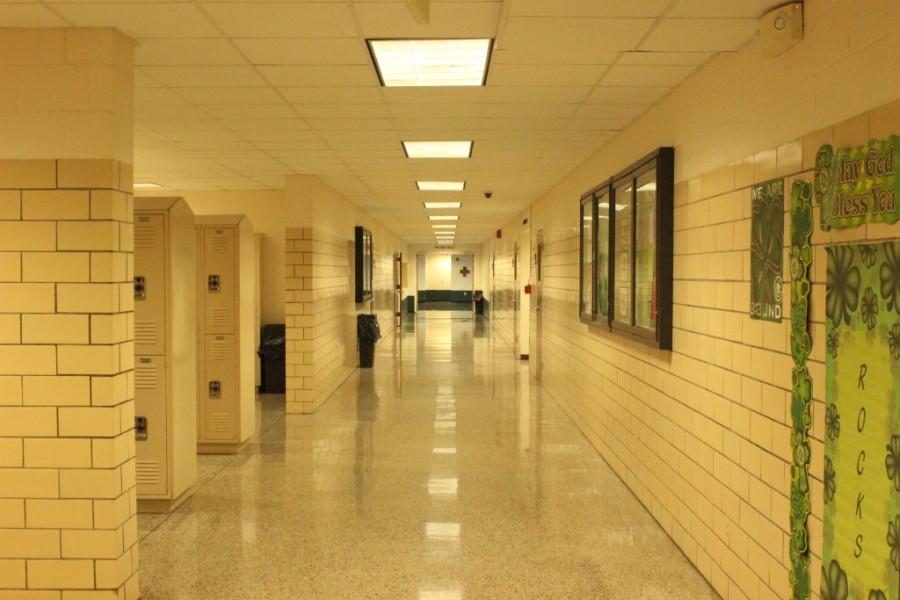Work Study teaches life lessons outside the classroom
Keeping Trinity’s campus shining takes year-round work.
October 22, 2014


Many people might think that summer break is down time for a school’s maintenance crew. In fact, it’s just the opposite. Keeping Trinity’s campus shining takes year-round work. Major players in that effort are the Work Study Program students.
The Work Study Program has a long tradition at Trinity. Mr. Bill Hogg’s predecessor as manager of facilities and grounds, Mr. Joe Demling, worked at the school for 40 years and began learning skills in the Work Study Program as a Trinity student.
What exactly is work study? Hogg said, “Work study is a twofold program. It helps the students with a tuition benefit, and it also helps Trinity receive extra workforce. It helps Trinity and the families that go here.”
Work study offers a variety of jobs throughout the year. The 100 to 120 students a year who make up the program help meet the deadlines of getting the school ready for the next school day — and the next school year. Students work four hours a day during the summer and two hours a day during the school year.
Senior Ben Ashby has been part of work study for three years and intends on doing it again this year. During the school year in the afternoons, some of his jobs include general cleaning — “sweeping floors, cleaning windows and boards, cleaning desks, and emptying trash cans and pencil sharpeners.” Some other duties during the school year include dusting and vacuuming.
Work study does not take place only during the school year. Hogg said, “It goes 12 months a year.”
Work during the summer differs. Every classroom is taken apart and cleaned, desks and all. Every cafeteria chair and table is cleaned during the summer.
Grounds work under the direction of Mr. Chad Baldwin is also a major part of the summer work-study experience. One of Ashby’s favorite parts of the program has been working with other students, some of whom have graduated. “It is too hard to pick one individual memory out,” he said. “There are too many.”
Major lessons from the program include learning promptness and commitment. Hogg said, “On the student side, the hardest part about work study is making the daily commitment to be here.”
Developing a work ethic is one of the major work-study lessons. Ashby said through the program he has learned how important it is “to work hard.”
The Work Study Program offers benefits beyond the school environment into the work world. Hogg has seen firsthand the benefit to future employment opportunities.
“It’s job experience,” he said. “The tuition benefit is like getting a paycheck. Besides the work experience, we have also had many guys who have done the Work Study Program and applied for jobs. (Students) have used me as a reference. They have used the person that they worked for while on work study, their supervisor, as a reference. It helps guys get jobs.”


